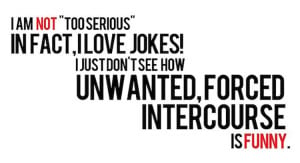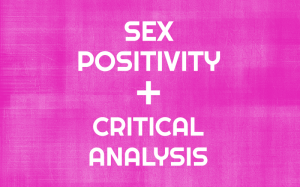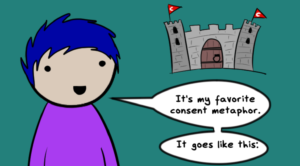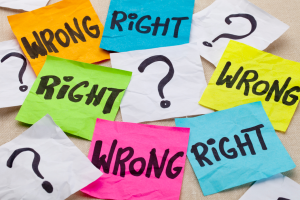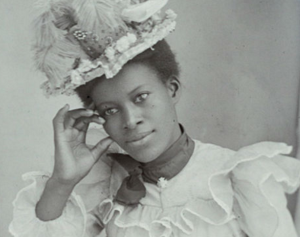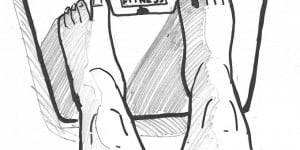
Source: The McGill Daily
Fat shaming is very detrimental to a person’s health, mental well-being, and relationship to their body.
Eating disorders are also very detrimental to a person’s health, mental well-being, and relationship to their body.
Dealing with both of these at the same time? Unbelievably difficult.
A lot of this is inescapable, as any consumer of media can tell you. Everywhere you look, there are messages about bodies and weight. Living in society and not experiencing some sort of fat shaming is pretty much impossible.
That means that we have to learn how to effectively deal with it so as not to let it get in the way of our recovery.
Eating Disorders and Fatphobia
Eating disorders and fatphobia are very intimately connected.
Many (if not most) eating disorders deal with some type of weight-related symptom or anxiety. The desire to control one’s weight or manipulate one’s body is a byproduct of this as well.
There’s also a connection between eating disorders and the media, as body dissatisfaction and disordered eating have a connection to consumption and exposure.
Eating disorders are on the rise, as research has estimated that 1-in-5 women between the ages of 12-30 has an eating disorder.
Media exposure, clearly, has also been on the rise over the generations, and there have been research findings that show that even short-term exposure to the thin ideal in the media can increase body dissatisfaction.
There is a connection between exposure to (and subsequent internalization of) the thin ideal and the development of eating disorders.
This cultural obsession with thinness, and the fatphobia that comes along with it, create negative consequences not only in the context of mental illness, but also in the context of stereotypes and fatphobic attitudes towards people who have eating disorders.
This can make recovery even more difficult, especially when fatphobia can act as a trigger to your eating disorder.
So what can we do about it?
Dealing with Fat Shaming from People
If the fat shaming you’re combatting is coming from another person, your strategy for coping might likely vary according to how close you are to this individual.
If the fatphobia is coming from a stranger (who assumingly has no knowledge of your eating disorder), depending on how safe you feel, avoiding further interaction or walking away from the conversation in some fashion might be best.
You can choose whether or not to give someone like this some kind of response, but it’s important first and foremost to take care of yourself.
Don’t bother engaging with someone if you know that it’s not going to lead to anything but anxiety.
However, if the person is someone with whom you’re acquainted or otherwise know somewhat well (like maybe a classmate or mutual a friend), you can consider asking them politely if they would not speak about triggering material in front of you.
You could say that it makes you feel uncomfortable or that you don’t like to discuss other people’s bodies. Offering some kind of reason will most likely result in them backing off of the topic.
And if they don’t? Again, disengaging from the conversation is always an option.
If the person in question is someone that you know very well and care about (maybe a family member or close friend), you might feel comfortable enough to share with them your discomfort – to whatever level you think is appropriate.
If you feel like sharing that you have an eating disorder, do that. If you want to stick to explaining your discomfort, that’s fine, too. Whatever makes you feel safe and secure in that moment is always an acceptable way to handle your discomfort.
In many ways, it can be more difficult to navigate fatphobia from the people we are closest to because their words affect us so much more. They also could potentially be a source of your eating disordered behavior (I, for one, have a few people in my life who are), which makes the experience that much more triggering.
But being honest (in some way, shape, or form) is usually a good principle to abide by in any situation. You’ll probably be facing this dilemma again with them if you aren’t firm, so nipping it in the bud might benefit you in the long run.
I know from experience that sometimes the fatphobic comments aren’t even about you, but that doesn’t mean that they don’t still have triggering effects.
Give yourself permission to think critically about what they are saying and not internalize or apply their comments onto yourself.
Take care of yourself and your needs before all else, and have some type of self-care activity you can use to distress from this experience.
Fat Shaming from Media
Fatphobia that stems from the media can be a harder beast to tame.
The fact is, we live in a society that thrives on media consumption; we live and breathe it all day, every day.
Try going a whole day without once browsing the Internet, watching a television show, reading an article, listening to music, seeing a commercial or billboard, or even checking your phone.
It’s pretty much impossible.
Because of this, avoiding media is not the easiest solution for dealing with the fatphobia within it.
Instead, it’s important to apply the principles of media literacy into your media consumption.
When you practice media literacy, you’re not allowing yourself to take the messages that you’re being sent for granted. Instead of letting the material fester in your subconscious mind and go unexamined, you’re intervening.
Media literacy involves a lot of critical thinking and analyzing (and practice!), but can be done with the help of a few simple questions you can ask yourself when viewing any piece of media, developed by the Center for Media Literacy:
1. Who created this message?
2. What creative techniques are used to attract my attention?
3. How might different people understand this message differently than me?
4. What values, lifestyles, and points of view are represented in, or omitted from, this message?
5. Why is this message being sent?
To help you answer these questions, it’s important also to remember that the messages in the media are created for a purpose, and that purpose is usually profit or power.
Next time you watch a TV show or read something online, take a stab at asking and answering these five questions about it. The more you practice, the better you’ll get!
Internalized Fatphobia
Since the culture in which we live operates under valuing the thin ideal, we all have its internalized presence within ourselves and our ways of thinking to some degree.
Our own ideas about our bodies can be a huge detriment to our eating disorder recovery. In fact, they are probably a massive part of our eating disorder itself.
Because of this, dealing with our own fatphobia is essential to recovery. We have to learn to love our bodies and not place value judgments on them (or anyone else’s).
This might be the hardest type of fatphobia to deal with, and you can’t do it alone.
It’s important to have a support team that you can talk to and use as a shoulder to lean on. Your support team could be in the form of a recovery group, a team of medical and mental health professionals, friends and family, or ideally, some combination of these three.
Talk to them about the internal dialogue you use to talk about your body. Ask them for help in creating new ways of relating to your body. And have them hold you accountable.
Since everyone’s fatphobia is different, there isn’t one roadmap I can lay out for you that will be effective.
But it can help to engage in some exercises to help you better understand your ways of thinking about your body.
Try writing down every thought you have about bodies for a whole day. Notice when you use fatphobic language and ideas, and use positive affirmations to shut out that voice in your head.
Do something to help yourself and your team better understand where you’re at with this. And even though it will probably be scary, understand that it’s an important part of recovery.
***
Dealing with fatphobia is never, ever easy, but it is possible to navigate.
The important thing to remember is to hold yourself and others around you accountable.
Since fatphobia is a part of our cultural framework, it is inevitably a part of your reality. But it no longer has to be a part of your reality.
Recovery is possible.
Want to discuss this further? Login to our online forum and start a post! If you’re not already registered as a forum user, please register first here.
Erin McKelle is a Contributing Writer for Everyday Feminism. She’s an e-activist, video blogger, student, and non-profit advocate and has launched several projects including Fearless Feminism and Consent is Sexy. In her spare time, Erin enjoys reading, writing bad poetry, drawing, politics and reality TV. You can visit her site here find her blogging at Fearless Feminism, Facts About Feminism, and Period Positive. Follow her on Twitter @ErinMckelle and read her articles here.
Search our 3000+ articles!
Read our articles about:
Our online racial justice training
Used by hundreds of universities, non-profits, and businesses.
Click to learn more










